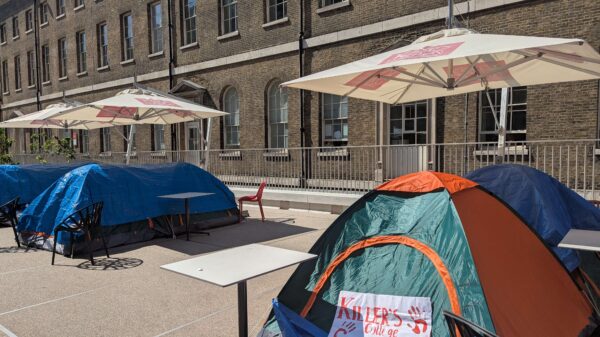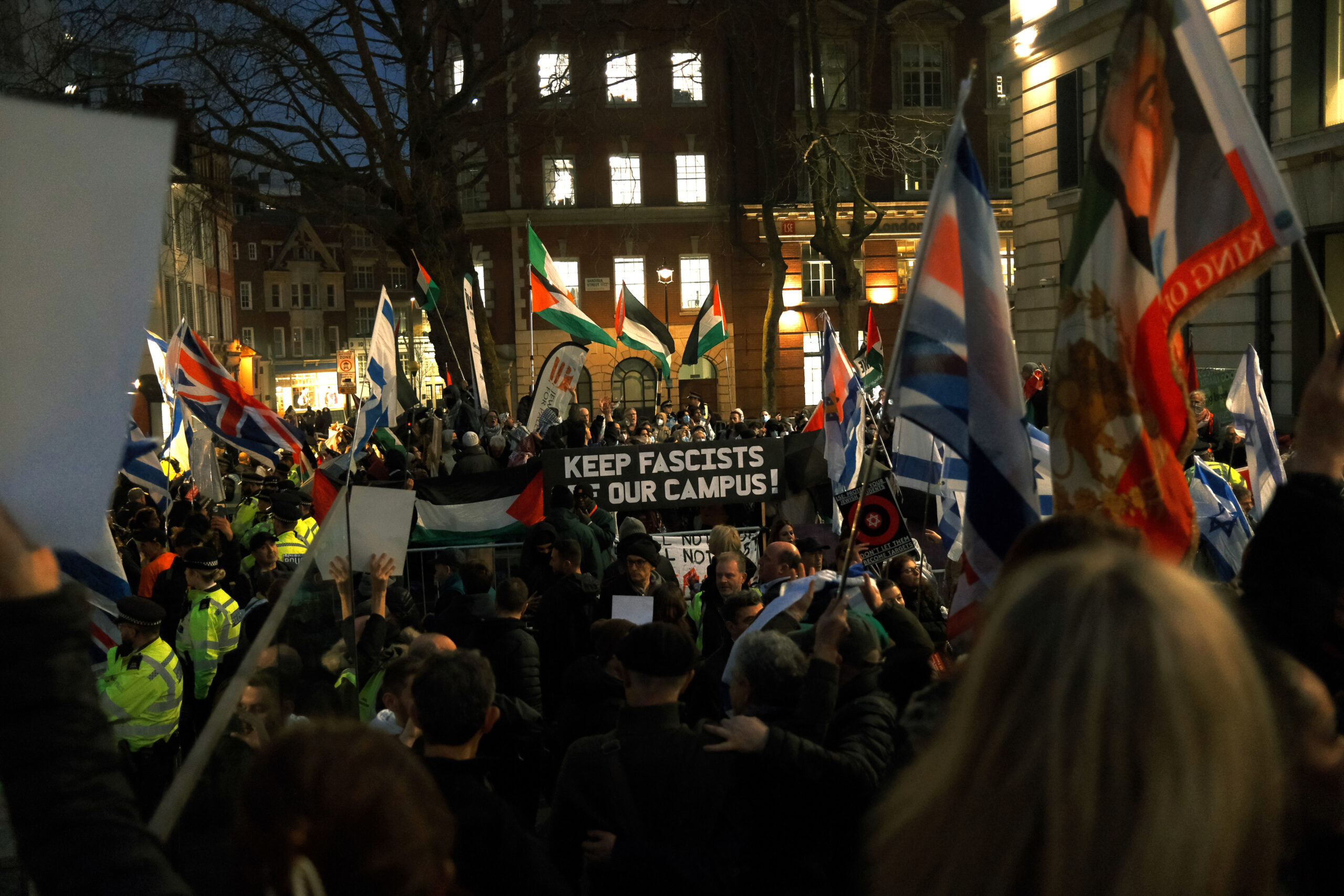Staff writer Alex Astley argues that the differences between US rhetoric and actions are a prime example of cognitive dissonance.
The scenes of children covered in cement dust surrounded by the rubble of the houses they once inhabited will be familiar to anyone who has read a newspaper in the past two months. By now, almost a fifth of Gaza’s buildings have been destroyed or damaged since the commencement of the latest conflict on 7th October, according to UN figures. Meanwhile, the death toll continues to rise. According to recent estimates (released by Israeli and Hamas-run Gazan authorities), this stands at 1,147 in Israel and 18,205 killed in Gaza, including more than 7,000 children, though the near collapse of the health system is making it harder to count the dead.
Less apparent, perhaps, are some of the political forces behind this conflict. The vote on Tuesday in the UN General Assembly on a resolution calling for an “immediate humanitarian ceasefire” saw the support of a large majority, with 153 states in favour, 10 voting against, and 23 abstaining. The US was one of 10 member states rejecting this resolution, with the UK following behind politely in abstention. Prior to this, the US rejected a UN Security Council resolution demanding a ceasefire in Gaza on 8 December, blocking this with the veto power it holds as one of five permanent member states. Again, the UK abstained politely.
The result on 8 December was met with wide condemnation, primarily due to concern over the humanitarian situation in Gaza, but also due to a growing perception of double standards in US foreign policy. The origins of this reputation are not hard to decipher. After two years of heartfelt condemnation by US officials – sometimes verging on tears, of the brutality against civilians in eastern Ukraine, these same officials have displayed a cool pragmatism when the same brutality has been directed towards those in Gaza. In the sanguine words of White House National Security Council spokesman John Kirby, “This is war … And innocent civilians are going to be hurt moving forward”. Though a number of politicians on both sides of the Atlantic have spoken out against Israel’s actions in Gaza, the official stance has refrained from calling for a ceasefire, humanitarian “pauses” being the preferred term.
Yet accusations of double standards seem misplaced. If anything, the war in Gaza has uncovered what can best be described as cognitive dissonance; a well-documented phenomenon in psychology that describes the conflict that occurs due to a disparity between a person’s actions and their beliefs. How else can one make sense of the events just described? At the Security Council briefing on 8 December, US representative Robert Wood managed to say in the same breath that “while the United States strongly supports a durable peace in which both Israelis and Palestinians can live in peace and security, we do not support calls for an immediate ceasefire.” It is not often that one sees such a clear overlap in the Venn diagram between foreign policy and psychiatry. The case being defended to the point of international isolation by Mr Wood and the Biden administration is that a ceasefire would allow Hamas to regroup and thus prolong the conflict. But the destruction of Hamas cannot be carried out at the gratuitous expense of civilian lives and in disregard of international humanitarian law. A ceasefire would help to secure “peace and security” for civilians in Gaza today. And, as over 70 years of US diplomatic support for Israel have made clear, the journey to “durable peace” cannot begin until the rights and freedoms of those on both sides of the conflict are considered on equal terms.
The veto last week is but the latest in a long list in which the US has wielded this prerogative to block resolutions dealing with the Israeli-Palestinian conflict. According to data published by the UN, the vote on 8 December was the 35th time since 1945 the US veto had been used to scrap a resolution critical of Israel. There are some prominent examples. In 2001, the US vetoed a draft resolution calling for Israel to abide by the Geneva Convention following the violence that erupted during the Second Intifada. On the status of Jerusalem, following US recognition of the city as Israel’s capital in 2017, the veto was used against a resolution demanding that the UN determine the status of Jerusalem. Again, following the Great March of Return in 2018 – protests in which Palestinians demanding the right to return to their ancestral homes were met by sniper fire, the UN drafted a resolution stressing the need for “comprehensive peace” and restraint from “the use of indiscriminate force against Palestinian civilians”. Once again, the US was the only country to veto.
Symptoms of cognitive dissonance, it seems, are chronic. Ostensibly, successive administrations in the White House have all sought stability and peace in the region and claimed staunch support for humanitarian law. The voting record shows otherwise. This time, the consequences have reached catastrophic proportions. Amnesty International released a statement the day before the Security Council vote emphasising concern over the “likely irreversible impact” of Israel’s bombardment on Gaza, and that “mass violations threaten all people in the region … and international peace”. While the UN director for Human Rights Watch, Louis Charbonneau, has said that by “providing Israel with weapons and diplomatic cover as it commits atrocities … the US risks complicity in war crimes”.
With the violence in Gaza at its worst in decades and the US becoming increasingly isolated diplomatically, it seems we are at an inflexion point, whereby the next decisions made by a small selection of political leaders may irrevocably damage not only the fate of Palestinians but the remnants of the United States’ reputation as a defender of international law and human rights.















